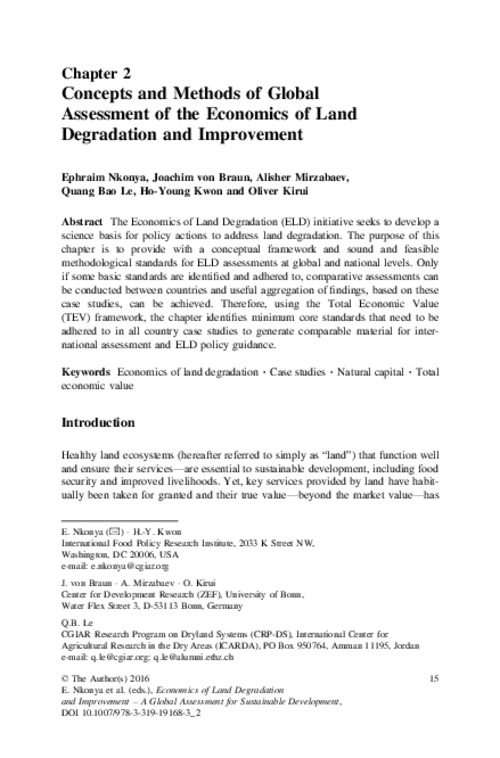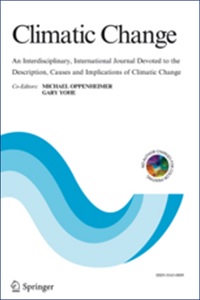About Springer
Throughout the world, we provide scientific and professional communities with superior specialist information – produced by authors and colleagues across cultures in a nurtured collegial atmosphere of which we are justifiably proud.
We foster communication among our customers – researchers, students and professionals – enabling them to work more efficiently, thereby advancing knowledge and learning. Our dynamic growth allows us to invest continually all over the world.
We think ahead, move fast and promote change: creative business models, inventive products, and mutually beneficial international partnerships have established us as a trusted supplier and pioneer in the information age.
Members:
Resources
Displaying 151 - 155 of 1195Concepts and Methods of Global Assessment of the Economics of Land Degradation and Improvement
The Economics of Land Degradation (ELD) initiative seeks to develop a
science basis for policy actions to address land degradation. The purpose of this
chapter is to provide with a conceptual framework and sound and feasible
methodological standards for ELD assessments at global and national levels. Only
if some basic standards are identified and adhered to, comparative assessments can
be conducted between countries and useful aggregation of findings, based on these
case studies, can be achieved. Therefore, using the Total Economic Value
Sand winning in Dormaa as an interlocking of livelihood strategies with environmental governance regimes
In this article, the attempt is made to address regime interaction in environmental governance by emphasising human livelihood action as a causal factor in this interaction. The paper elucidates how governing human behaviour on environmental resources is a process of interaction between different environmental governance regimes.
From food security to food wellbeing : examining food security through the lens of food wellbeing in Nepal’s rapidly changing agrarian landscape
Over 94 % of Nepalese migrant workers are male youth who leave their female counterparts behind to manage agriculture alongside their traditional domestic chores. Changing agrarian and labour landscapes shape food security, livelihood choices and the wellbeing of those who continue to engage in local small-scale agriculture. The study aims to understand the interactions between household livelihoods, food security and the wellbeing of left-behind women and lower-caste farmers. It includes a literature review, and draws results from 69 in-depth interviews with women farmers.
Case Study: Farmer–Herder Conflicts in Burkina Faso, Côte d’Ivoire and Ghana
This chapter is a case study that tests hypotheses in order to determine if political factors can reduce violence in cases of climate-change-induced or -aggravated agro-pastoral conflicts over natural resources. Three West African countries were selected because of their common socio-economic and environmental characteristics and because they host comparable farmer–herder conflicts: Burkina Faso, Côte d’Ivoire and Ghana. The level of farmer–herder conflicts is estimated to have risen between 1960 and 2000 in the three countries.
Mapping adaptive capacity and smallholder agriculture: applying expert knowledge at the landscape scale
The impacts of climate change exacerbate the myriad challenges faced by smallholder farmers in the Tropics. In many of these same regions, there is a lack of current, consistent, and spatially-explicit data, which severely limits the ability to locate smallholder communities, map their adaptive capacity, and target adaptation measures to these communities.






